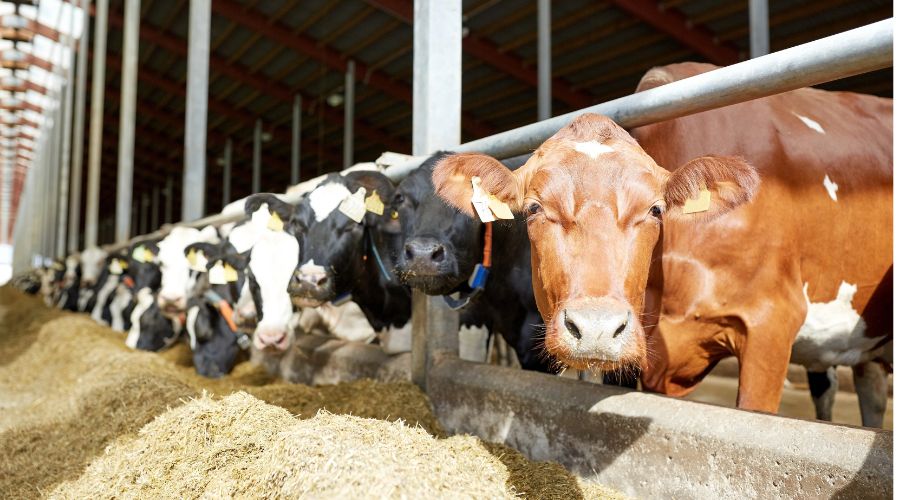Heat stress research gets further funding
23rd December 2024
Insights from the research will help develop tools for farmers to analyse the risk and impact of heat stress on-farm.

Galebreaker Ltd and Smartbell have been awarded a second grant by the Digital Dairy Chain to deliver further research on the impact of heat stress in housed dairy herds in Cumbria and the South and West of Scotland.
The insights gained will inform the development of innovative, digital tools that will allow farmers to analyse the risk and impact of heat stress on-farm, with the aim of improving animal welfare and productivity.
The latest R&D grants, managed and awarded independently by the UK’s national innovation agency, Innovate UK, were part of a competitive funding round that has allocated £1 million to groundbreaking projects across the country.
Working in partnership with researchers from Scotland’s Rural College (SRUC), Galebreaker and Smartbell will deliver the A-SHED project (Analysis of Scottish Housed Environments for Dairy).
Better building designs
SRUC’s research findings will be used to develop an app and a digital design tool that allows farmers to quickly analyse on-farm data and take appropriate action to minimise the impact of heat stress.
Galebreaker’s technical director, Andrew Gardner believes the project’s on-farm data will lead to better building designs that are optimised for variable climate conditions, and more resilient to future climate change.
“With the average livestock building lasting over 30 years, this project helps demonstrate how existing structures can be modified to deliver better conditions that help housed animals thrive, and how new builds can be designed to withstand future climate challenges,” says Mr Gardner.
READ MORE: 124th Annual Christmas Fatstock Show presents top-class entries
READ MORE: Suffolk: Festive tractor run raises over £8K for charity
Understanding heat stress
At the forefront of animal behaviour and environmental sensor monitoring, Smartbell co-founder Jose Chitty believes the project’s application of data analytics will pave the way for better understanding of heat stress in Scotland and Cumbria.
“Ultimately our long-term aim for A-SHED is to enable farmers to mitigate the challenging effects of heat stress, which include reduced fertility, lameness, mastitis, lower milk yield and reduced animal longevity. It’s an issue that poses an increasing risk to farm profitability and sustainability,” says Mr Chitty.
The research will be overseen by Marie Haskell, professor in Animal Welfare Science at SRUC, who emphasises the importance of innovative solutions that align with the sustainability goals of the dairy industry.
“It is great to bring two UK manufacturers together, alongside our researchers, to collaborate in addressing a prominent issue for the industry.
“A-SHED will directly help farmers in Cumbria and the south and west of Scotland, but these tools will also be just as applicable to the national and global agriculture sector,” says Prof. Haskell.
Read more livestock news.
